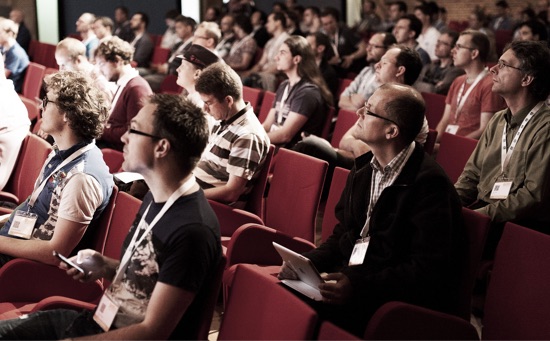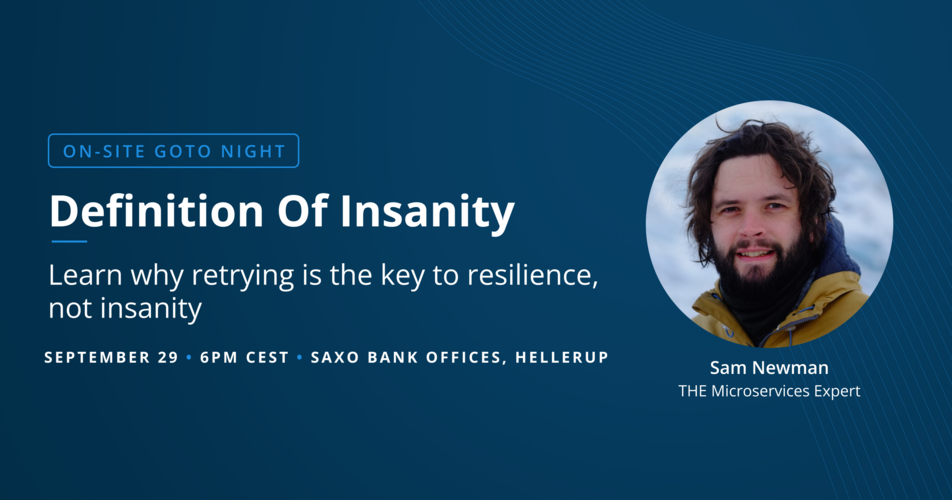Sam Newman
The Microservices Expert. Author of "Building Microservices" & "Monolith to Microservices"
Sam Newman
The Microservices Expert. Author of "Building Microservices" & "Monolith to Microservices"
Sam Newman is an independent consultant specializing in helping people ship software fast. Sam has worked extensively with the cloud, continuous delivery and microservices and is especially preoccupied with understanding how to more easily deploy working software into production.
For the last few years, he’s been focused on microservice architectures. Sam worked with a variety of companies around the world, often with one foot in the developer world and another in the IT operations space. Previously, has spent over a decade at ThoughtWorks before leaving for a startup, and then eventually setting up his own company. Sam is a frequent speaker at conferences and author of best-selling books.
Topic focus: Microservices
Check out some of Sam’s past talks:
- GOTO Berlin 2019 - Monolith Decomposition Patterns
- GOTO Copenhagen 2019 - Why Your Private Cloud is Probably a Bad Idea
- GOTO Berlin 2018 - Insecure Transit - Microservice
A few of Sam’s books:
Content featuring Sam Newman

Confusion in the Land of the Serverless

Insecure Transit - Microservice

Feature Branches And Toggles In A Post-GitHub World

Confusion In The Land Of The Serverless

Why Your Private Cloud is Probably a Bad Idea
![Why Your Private Cloud is Probably a Bad Idea [VIRTUAL]](https://img.youtube.com/vi/MbaPtzSuQII/maxresdefault.jpg)
Why Your Private Cloud is Probably a Bad Idea [VIRTUAL]

Q&A - Monolith to Microservices with Sam Newman and Sven Johann

Monolith Decomposition Patterns

Where We’re Going, We Don’t Need Servers!

You Keep Using That Word

You Keep Using That Word

Software Architecture for Tomorrow: Expert Talk

Cloud, containers, security and AI - what’s now, what’s next?

Software Design, Architecture & Giving Clarity at Scale


Enabling Microservices Success

Software Architecture for Tomorrow: Expert Talk

It's A Trap!

Designing Microservices Masterclass Taster

GOTO Night with Sam Newman: Definition Of Insanity
Past masterclasses featuring Sam Newman
Microservice Communication | GOTO Copenhagen 2025
Resilient Distributed Systems | GOTO Copenhagen 2025
Resilient Distributed Systems | GOTO Amsterdam 2024
Microservice Communication | GOTO Amsterdam 2024
Monolith to Microservices | GOTO Copenhagen 2023
Microservice Integration: Events, Sagas and Schemas | GOTO Copenhagen 2023
Monolith to Microservices | GOTO Copenhagen 2020
Microservice Integration: Events, Sagas and Schemas | GOTO Copenhagen 2020
Microservice Integration: Events, Sagas and Schemas (Tuesday) | GOTO Berlin 2019
Monolith to Microservices (Monday) | GOTO Berlin 2019
Monolith to Microservices | GOTO Copenhagen 2019
Microservice Integration: Events, Sagas and Schemas | GOTO Copenhagen 2019
Designing Microservices (Tuesday) | GOTO Berlin 2017
Designing Microservices | GOTO Berlin 2017
Designing Microservices (Thursday 1-day workshop) | GOTO Chicago 2017
Designing Microservices (Wednesday 1-day workshop) | GOTO Chicago 2017
Designing Microservices (Monday) | GOTO Berlin 2018
Designing Microservices (Tuesday) | GOTO Berlin 2018
Designing Microservices | GOTO Amsterdam 2018
Browse all experts
Here
